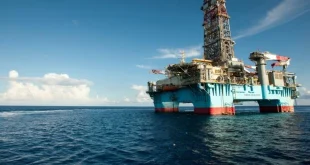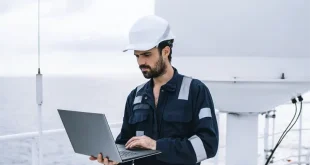
Introduction:
Offshore industries play a crucial role in the global economy, providing a significant portion of the world’s energy and resources. However, working in these environments comes with inherent risks, and offshore accidents can have severe consequences for workers. When such incidents occur, navigating the legal complexities involved in seeking compensation becomes crucial. This article explores the intricacies of offshore accident legal representation, shedding light on the challenges faced by workers and the role of legal professionals in securing their rights.
Understanding Offshore Accidents:
Offshore accidents encompass a wide range of incidents, including oil rig explosions, ship collisions, crane failures, and falls from heights. These accidents often result in serious injuries or fatalities, leaving victims and their families grappling with the physical, emotional, and financial aftermath. Identifying the root cause of the accident is essential for determining liability and establishing a foundation for legal action.
Jurisdictional Challenges:
One of the unique challenges in offshore accident cases is determining the appropriate jurisdiction for legal proceedings. Offshore workplaces are often located in international waters, adding complexity to the question of which legal system governs the case. Legal representation must be well-versed in maritime law, international regulations, and the intricacies of jurisdiction to effectively advocate for their clients.
Maritime Law and Offshore Accidents:
Maritime law governs activities on the high seas, including offshore oil rigs and platforms. Legal representation specializing in maritime law is crucial for offshore accident cases, as these professionals understand the nuances of the Jones Act, Longshore and Harbor Workers’ Compensation Act (LHWCA), and other relevant statutes. The Jones Act, in particular, provides a framework for compensation for injured seamen, but its application can be complex and requires experienced legal guidance.
Employer Negligence and Liability:
Proving employer negligence is often central to securing compensation for offshore accidents. Legal representation must delve into the details of the accident, assessing whether safety protocols were followed, equipment was properly maintained, and adequate training was provided. Establishing a connection between employer negligence and the incident is crucial in building a compelling case.
Compensation and Damages:
Offshore accident victims may be entitled to various forms of compensation, including medical expenses, lost wages, rehabilitation costs, pain and suffering, and in the case of fatalities, wrongful death benefits. Legal representation plays a pivotal role in calculating the full extent of damages and ensuring that their clients receive fair and just compensation.
The Role of Investigative Experts:
Given the complexity of offshore accidents, legal representation often collaborates with investigative experts, including marine engineers, safety inspectors, and accident reconstruction specialists. These professionals help in reconstructing the events leading to the accident, identifying responsible parties, and providing expert testimony in court. Their insights strengthen the legal case and contribute to a more comprehensive understanding of the incident.
Negotiation and Settlement:
While some offshore accident cases may go to trial, many are resolved through negotiation and settlement. Legal representation must possess strong negotiation skills to advocate for their clients’ interests effectively. Balancing the pursuit of fair compensation with the desire for a timely resolution is a delicate process that requires experience and strategic acumen.
The Importance of Timely Action:
Prompt action is crucial in offshore accident cases. Statutes of limitations, which vary depending on the jurisdiction and nature of the accident, impose strict deadlines for filing claims. Legal representation must ensure that their clients take timely action to preserve their rights and enhance the chances of a successful legal outcome.
Conclusion:
Navigating troubled waters in the aftermath of offshore accidents requires skilled and experienced legal representation. From understanding maritime law to investigating the intricacies of each incident, legal professionals play a vital role in securing compensation for victims and their families. As the offshore industry continues to evolve, the need for specialized legal expertise in handling the complexities of offshore accident cases becomes increasingly paramount. By advocating for the rights of those affected, legal representation contributes to the broader goal of fostering a safer working environment in the offshore industry.


